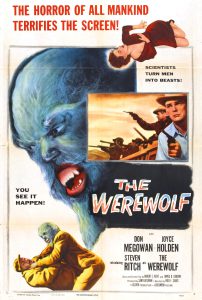I’ve always been fascinated by stories about amnesia. We all know how it works from watching television in the 1970s and ’80s: you hit your head once, you’ve got amnesia; you hit it again, your memory’s back. Simple. Or is it?
One of my favourite films to feature a character with amnesia is Someone Behind the Door (1971) by Nicolas Gessner. In it, Charles Bronson plays a man with amnesia who is manipulated by a doctor, played by Anthony Perkins, into believing that the doctor’s cheating wife is his own – and that he must kill her. It’s a very different kind of role for Bronson, and a very effective suspense thriller.
Other films I liked which feature characters with amnesia include The Bourne Identity (1988 and 2002), The Long Wait (1954) – which is based on one of my favourite Mickey Spillane novels; Who Am I? (1998) – a Jackie Chan movie with a final sequence of stunts and action so amazing that I watched it whenever I stumbled upon on on late night TV; The Sender (1982), an effective but lesser known British horror film; and even The Muppets Take Manhattan (1984), in which Kermit loses his memory and becomes a boring Madison Avenue advertising frog named Phil.
Imagine how intrigued I was to discover that I had an unheard of (at least to me) Hicksploitation movie called Moonshine Love (1969) hiding on one of my Something Weird double feature DVDs (as a bonus feature) – and it’s about a guy with amnesia!
The description said “Hillbilly harlots Jeannie and Lil take a hankerin’ for a two-bit robber with amnesia and a bag of stolen loot in the feature-length regional skinflick, Moonshine Love!” Not to downplay enticing phrases such as “Hillbilly harlots” and “regional skinflick”, but I was excited by “a two-bit robber with amnesia”.
The movie does begin with the planning and execution of a robbery, and it is #NotQuiteClassicCinema gold! The robbery doesn’t go as planned, and our hero double-crosses the other two thugs and runs off with the money. Unfortunately for him, he has a bit of an accident and hits his head (and we all know what that means). Very, very fortunately for him, the robber is found and brought home by the aforementioned “hillbilly harlots” – perhaps better described by the original title of this movie, which is Sod Sisters.
As one of my twitter friends pointed out (hello Peter!) the next sequence features a pretty amazing go-go dancer performing onstage while the two double-crossed robbers lament their situation. I love the fact that this dance gets its own title card in the opening credits: dance sequence by Pat McGlamry. It does go on for five and half minutes of the film’s sixty-one minute running time – which is substantial. Alas, as my friend Peter points out, this is McGlamry’s only credit on the IMDb (and presumably her only film appearance), which is quite a shame.
The bulk of the rest of the movie really focusses on the sexy, sleazy goings on at this backwoods homestead. Needless to say, the Sod Sisters take more than a passing interest in this man with amnesia, who really becomes a helpful hand around the property. Most of the hicksploitation films I’ve watched at the home drive-in have been salacious stories with a PG execution. In other words, they may have been “adults only” titles in their day, but you could see more extreme nudity and sexual behaviour on the average modern TV show. Moonshine Love, on the other hand, still earns a hard “R’ rating with a fair amount of full frontal nudity and an extraordinary scene in which one of the sisters pleasures herself with a rather large carrot. It’s not pornographic by any means. But it is graphic.
Eventually, the forward moving plot of the first ten or fifteen minutes returns and there is a showdown of sorts. There is suspense, and action and comedy. It’s not entirely satisfying from a storytelling perspective, but it is entertaining.
The IMDb lists the running time of the movie as seventy-four minutes, which is thirteen minutes longer than my version seems to be. This could suggest that there is even more story, or perhaps more exploitation, in some other version of the movie. However, this could just be an inaccurate listing.
Moonshine Love (1969) is a much more sleazy and entertaining film than I expected it to be. As an “extra” feature on a DVD set that doesn’t even advertise it on the front, I expected it to be dull. It is, probably, the worst of the three movies in terms of quality. But it is the most extreme of the three movies in terms of delivering the exploitative goods. If that sounds like something you could appreciate, do not hesitate to track this movie down and watch it. If, however, you prefer well written and performed monologues to romantic scenes with vegetables, you would be better off to stick to movies like Common Law Wife (1961) or maybe Jennie, Wife Child (1968). One thing is certain, all of these movies could spice up any #FridayNightAtTheHomeDriveIn.
 The Werewolf (1956) by #FredFSears
The Werewolf (1956) by #FredFSears